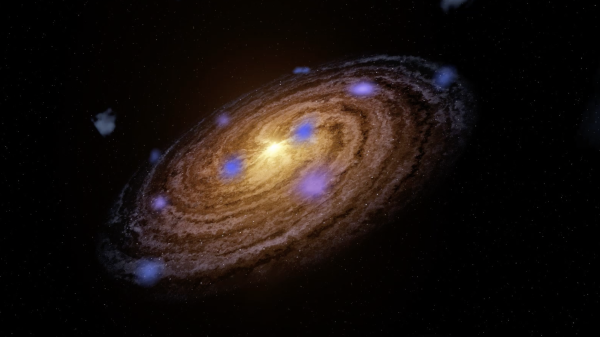ASU to launch the world’s first satellite command and control certificate program

The International Space Station. Photo courtesy NASA
The ASU Interplanetary Initiative has announced its partnership with Qwaltec to offer a satellite command and control certificate program. The first course of the multicourse curriculum launched Sept. 3 on Arizona State University’s continuing and professional education platform online.
The initial course will provide students with detailed familiarization of space operations, focusing on the central role of operations in any space mission. Aspects of operations in different types of control centers will be examined from the perspective of a space mission’s purpose, a space system’s or constellation’s attributes, space program types and organizational structures, and the individual and team activities and traits required to successfully operate and maintain one or more spacecraft following launch into orbit. To meet the growing demand for operations and support team members in the commercial space industry, this course will provide students with the necessary foundational knowledge to be successful as they pursue and start a career in the exciting field of space system operations, regardless of their academic background.
Qwaltec offers government and commercial programs in technical training, systems engineering and program management in Tempe, Arizona.
The satellite command and control certificate program initially consists of three modules: introduction to space program characteristics, the importance of ground operations and satellite ground operator activities and traits. Each module’s lessons include quizzes and hands-on interactive exercises. Follow-on courses will delve into more details of the concepts introduced and will provide hands-on simulation scenarios as well. For more details about the satellite command and control certificate course and curriculum, visit interplanetary.asu.edu.
Interplanetary Initiative is a new ASU pan-university initiative pioneering a way to combine deeply interdisciplinary education and research in teams to create the human space future, including robotic and human space exploration and the ways we prepare society for changes ahead.
More Science and technology

Podcast explores the future in a rapidly evolving world
What will it mean to be human in the future? Who owns data and who owns us? Can machines think?These are some of the questions…

New NIH-funded program will train ASU students for the future of AI-powered medicine
The medical sector is increasingly exploring the use of artificial intelligence, or AI, to make health care more affordable and…

Cosmic clues: Metal-poor regions unveil potential method for galaxy growth
For decades, astronomers have analyzed data from space and ground telescopes to learn more about galaxies in the universe.…